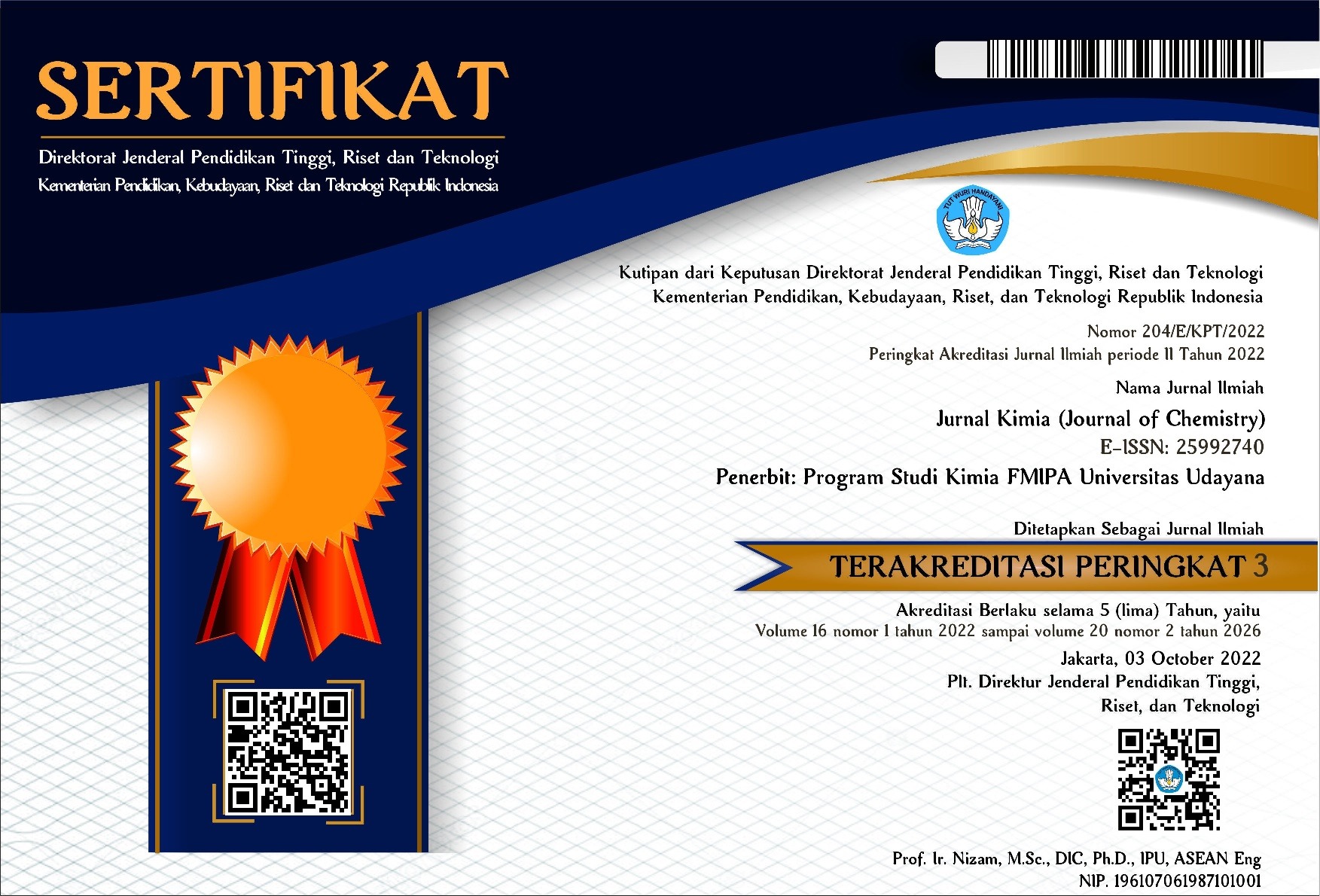LAJU KOROSI DAN MEKANISME INHIBISI ALUMINIUM MURNI MENGGUNAKAN KALIUM DAN KALSIUM STEARAT
Abstract
A research on corrosion rate and inhibition mechanism of pure aluminum using potassium stearate andcalcium stearate has been carried out. The objectives of this research were to explore the type of inhibitor of
potassium stearate and calcium stearate, to understand the reaction mechanism of corrosion inhibition of aluminum,
and to study the effect of the salts toward corrosion rate of aluminum in acidic condition.
Potassium and calcium citrates were found to inhibit the corrosion of pure aluminum at concentration of 60
ppm, in acidic (pH 3) condition, at 25oC. The inhibition efficiencies and relative corrosion rates were : 76 %; 0,31
(calcium stearate) and 73 %; 0,31 (potassium stearate). The result of the study on surface adsorption, by
chromatography and spectroscopy suggested that the aluminum inhibition mechanism by the potassium stearate and
calcium stearate anions was due to the formation of surface film as a consequence of the formation of complex
between aluminum surface atoms / ions with stearate (monodentate ligans) which donate their lone pair electrons
toward aluminum.
Downloads
Download data is not yet available.
How to Cite
SIREGAR, Tiurlina.
LAJU KOROSI DAN MEKANISME INHIBISI ALUMINIUM MURNI MENGGUNAKAN KALIUM DAN KALSIUM STEARAT.
Jurnal Kimia (Journal of Chemistry), [S.l.], nov. 2012.
ISSN 2599-2740.
Available at: <https://ojs.unud.ac.id/index.php/jchem/article/view/2816>. Date accessed: 20 feb. 2026.
Issue
Section
Articles
Keywords
Corrosion, inhibition, aluminium

This work is licensed under a Creative Commons Attribution 4.0 International License





